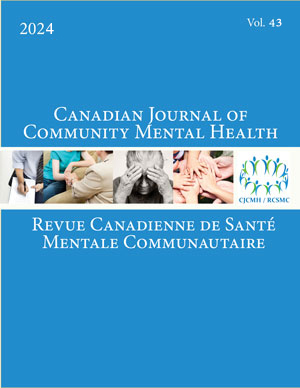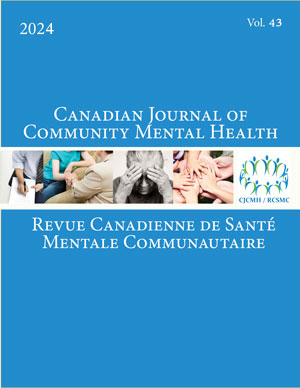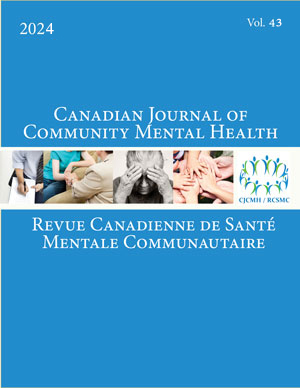Volume 4 • Number 2 • September 1985
OPEN ACCESS
Various considerations of theoretical, ethical and strategical order, should incite community psychologists to pay more interest to the evaluative questions. In doing so they will have to face two major problems. First of all, they will have to avoid the traps given by the methodological and theoretical debates: specifically, the medical and ecological models, and the quantitative and qualitative methods. And then, they will have to locate new decision criteria that will permit them to make their methodological choices in a less routine-minded way. These criteria will undoubtedly have to be found among the question asked by the evaluation, the pragmatic characteristics of the program and the nature of its theoretical base.
OPEN ACCESS
Evaluability assessment is a methodology designed to increase the appropriateness and utilization of evaluation studies. Through the collection and analysis of program information, evaluability assessment identifies which elements of a program can be usefully evaluated and which can not. By instituting a collaborative relationship with program staff, this approach facilitates further evaluation research and increases utilization. Three case studies in different mental health settings (a day program, a home care program, and a counselling program) illustrate the various implications and benefits of evaluability assessment and underscore the recommendation that program evaluation should almost invariably begin with this procedure.
OPEN ACCESS
This article describes an evaluation of the Rural Development Outreach Project (RDOP), a broad-aim rural development project designed to improve the quality of rural life by providing personnel and resources from the university to aid in the solution of problems in the community. Rather than assessing the outcomes of the project, this evaluation used a goal attainment scaling approach to examine the extent to which the individual programs comprising the project followed principles of rural development theory in establishing their services. Results indicated that an integrated approach to problems and active participation and involvement of community members was most likely to lead to above expected goal attainment.
OPEN ACCESS
This paper reports the results of an evaluation of a parent-child resource center in a suburb of Toronto. The resource centre was designed as a prevention program to strengthen and support mothers with young children by offering social support, recreational and education programs for both parent and child. The findings suggest that the program was effective in improving the mother's self-esteem and social supports, and enhancing the child's developmental progress. However, there was no evidence of program impact on parent-child interactions, and improvements were not correlated with frequency of attendance at the Centre. This study is a case example of the constraints placed on evaluations by program considerations, especially during the formative stages of program implementation.
OPEN ACCESS
Following the current literature, alternative resources for the mentally ill have already demonstrated their efficiency. However, the question remains of their role and specificity within the general service network in the field of mental health, especially when looking at their development and financial support. Social research, especially evaluation research, can contribute an answer to these questions concerning the organization of the service delivery system. This paper focuses on various evaluation approaches (systemic model, course of implementation and formative evaluation) of alternative resources and expectancies towards research.
OPEN ACCESS
Utilization-focused and stakeholder-based approaches to evaluation attempt to enhance utilization through the participation of individuals with a vested interest in evaluation outcomes. The present study sought to determine the skills training needs of the chronically mentally ill, and involved program participants (clients and staff) in measurement and design issues. Client interview, nominal group, and key informant strategies were used to obtain a variety of perspectives on client needs. Program clients were given a voice in decision-making and program planning, and research results were used to develop a skills training program relevant to client's needs.
OPEN ACCESS
One reason often cited for the difficulty in implementing and utilizing evaluation in mental health settings is the resistance of clinical staff. This resistance can often be traced to the lack of involvement of front-line staff in the research process, despite the fact that they are major stakeholders in the evaluation and its results. This article outlines a number of ways in which the needs of program staff can be addressed by involving them more in the design, implementation and reporting of the evaluation, by providing information that can be used in the assessment and treatment of individual clients, and by minimizing the negative consequences resulting from evaluation activities. An evaluation of a camp for children with learning disabilities and behaviour problems is used to illustrate some of the principles discussed.
OPEN ACCESS
Many program managers struggle with the issue of conducting program evaluations. Although few would argue against the concept of being accountable for the mental health services which they provide, many program managers seem to resist actually implementing program evaluation procedures. Some of the reasons for this resistance are discussed. Suggestions for overcoming this resistance are offered from the perspective of a program manager of a small children's mental health centre.
OPEN ACCESS
This article describes the key features of the evaluation of a welfare reform program, the Employment Support Initiatives Projects (ESIP), designed to improve employment for mothers receiving social assistance. The first section describes the scope of the initiatives, and the dilemmas posed for its evaluation by the variety of program models, caseload turnover, and confounds between policy initiatives. The second section outlines the major evaluation strategies, including the use of evaluability assessment and a developmental approach to ensure participation from the diverse groups involved in the evaluation. The third section briefly describes the results of the evaluation, and the major lessons for evaluation practice that emerged from this evaluation project.










